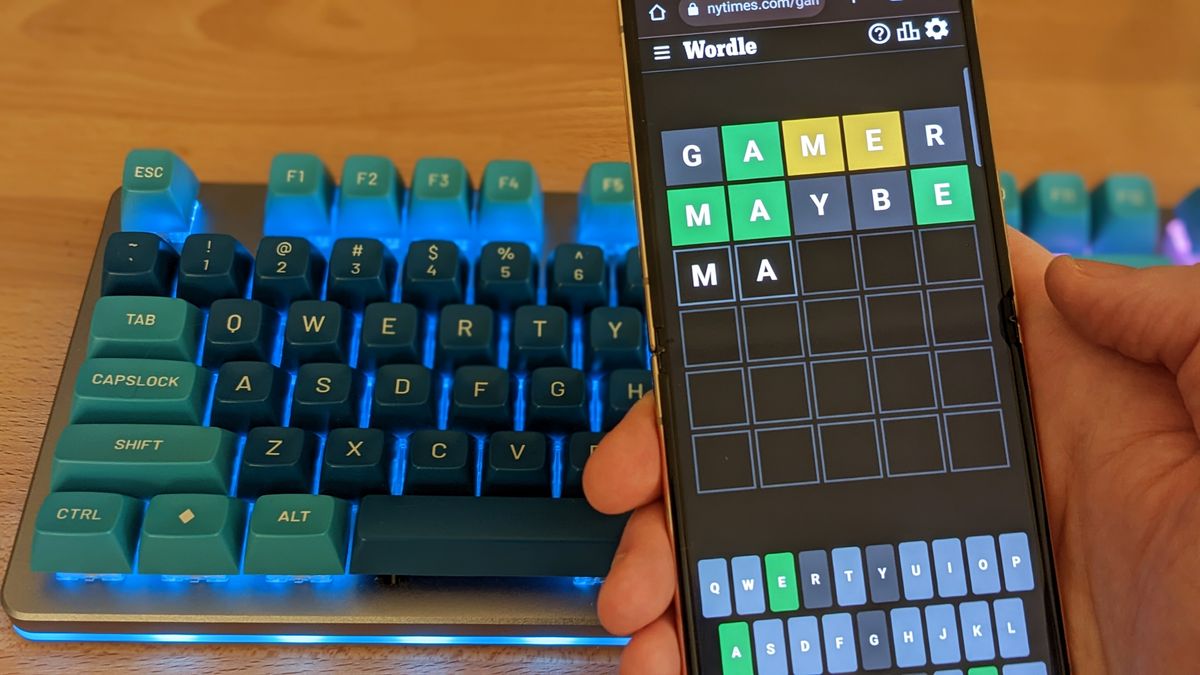Secret Level, Amazon’s new anthology series, is a visually stunning interpretation of iconic properties, twisting classic video games to reinterpret them into brief episodes — but the Dungeons & Dragons episode misses what makes the tabletop game great. It’s not the fault of the show as a whole, made by the same team behind Love, Death & Robots. Rather, it’s a mismatch of form; the brand that Dungeons & Dragons has become simply cannot be adapted in the same way as more non-narrative video games like Pac-Man, open-world RPGs like New World: Aeternum, or even other tabletop games, like Warhammer 40,000. After 50 years and millions of players, there’s just too much D&D for this adaptation to work.
To avoid any major spoilers, the basic premise of “The Queen’s Cradle” is a standard D&D adventure plot. Based on a short story written by award-winning speculative fiction author Brooke Bolander, the 15-minute episode follows a group of adventurers who stumble upon a young boy covered in arcane tattoos held captive by a dragon cult. Through the power of found family, they are able to overcome their individual shortcomings to fight a great evil.
Where the other episodes of the series feel more pointed — exploring specific themes, like the pitfalls of capitalism in the Outer Worlds episode, or totally abstract interpretations from their source materials, like the Pac-Man short — “The Queen’s Cradle” felt more like a compilation of tropes from The World’s Most Famous Tabletop Role-playing Game. Of course, some of this is certainly biased due to my own over-familiarity with Dungeons & Dragons compared to the other titles in the series. But these episodes, which are as much a reimagining as they are a tribute, are supposed to appeal to old fans as well as the new. It seems the distinctions between the narrative mediums of video games and tabletop RPGs are drastic when attempting to adapt them into short-form anthology episodes.
Even in an open-world video game, players have shared experiences interacting with characters and locations provided by a development team, regardless of when or how the game is played. Meanwhile, in tabletop role-playing, every single table has a different interpretation even when playing in official D&D settings. The collaborative element of a TTRPG relies on the improvisation and adaptability of the story to the player’s needs. Video games, by their very nature, do not do that. When a game is in your mind and not a developer’s, it can be anything and everything.
And so, to combat this lack of a unified play experience, the episode attempts to hit recognizable touchstones fans of D&D as a brand might recognize. In doing so, it misses the magic of what makes tabletop games special. Compared to something like Dungeons & Dragons: Honor Among Thieves — which uses the genre’s tropes as a source of comedy and tension to accurately convey the game’s culture within a feature-length film — “The Queen’s Cradle” is narratively limited by the constraints of the anthology series’ format. The profound emotional bonds that develop between characters over dozens of real-life play hours cannot be shoehorned into a 15-minute episode without feeling unearned and more than a little melodramatic — at least not alongside a constant series of self-serious winks and nudges alluding to the lifestyle IP that D&D has become.
While the art is still stunning (if not, on occasion, entering into the uncanny valley), it feels like “The Queen’s Cradle” is more about brand recognition than the type of powerful, grounded, and often very funny anthology storytelling the team at Love, Death & Robots is known for and does successfully in many of Secret Level’s other episodes. More than anything else, what this episode got wrong is: D&D is not a setting, nor is it a series of recognizable tropes and characters; it’s an experience of telling a story with people you love. And that takes time this anthology just doesn’t have.
Secret Level’s first eight episodes are now streaming on Prime Video.

 1 week ago
8
1 week ago
8









 English (US) ·
English (US) ·